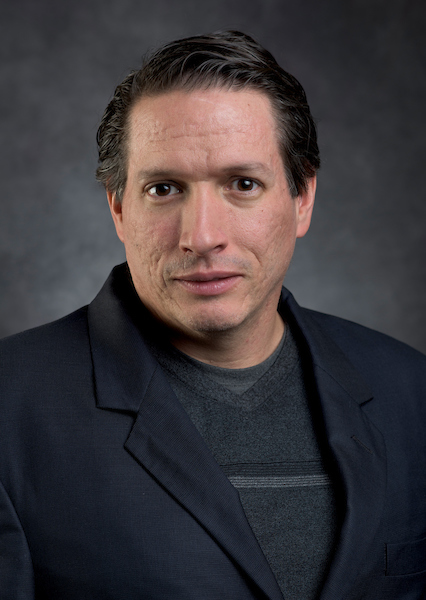Dr. Jose Florez-Arango is an assistant professor of population health sciences (interim) in the Division of Health Informatics, and director of the MS in Health Informatics program. Before joining Weill Cornell Medicine, he was an associate professor at the CUNY Graduate School of Public Health and Health Policy.
How did you first become involved in health informatics?

Dr. Jose Florez-Arango
I was first exposed to computers in 1985 and became a programmer before starting medical school in 1994 at the Universidad de Antioquia, Medellin, Colombia. The explosion of the internet prompted a “second wave” in the field of health informatics, which I explored while working at the library of my medical school. New advancements allowed my colleagues and I to establish an information network, which made biomedical literature more accessible to our students, residents, and faculty. However, an initial challenge to the usability of the network was the general lack of computer literacy at the university. As such, we created a program to help educate people on computer utilization and information retrieval.
After completing medical school, I worked as an emergency medicine doctor and in disaster management across Colombia. There were 13 models for documenting patient information, just in the city of Medellin. Tracking patient information was nearly impossible, and as a result, patient data was prone to inconsistencies and errors. I was motivated to prevent such errors induced by the systems in place, and to develop standardized means of data collection. My knowledge of health informatics allowed me to identify ways to improve those systems, optimize patient care, and identify complements to the services physicians provide.
Tell us about your research.
My primary research goal is to determine how technology can be used to support healthcare providers in delivering care efficiently, and patients in shared clinical decision-making and self-management. In my prior work, I have introduced the use of electronic health records, mobile health, and telemedicine to address socioeconomic problems and challenges to efficiency in healthcare.
What expertise do you bring to this role?
As an immigrant who trained abroad, I have international experience in healthcare and a global perspective. Resources are limited in countries like Colombia, and it is important to me that challenges are turned into opportunities for innovation and impact. In Colombia, I established master’s and continuing education programs in health informatics and shaped the national curricula for over 20 years. These have involved virtual learning environments and simulation centers, which can augment the training that the next generation of healthcare workers receive.
Throughout my career, I’ve sought to build teams that can innovate and affect change internationally. As an active member of AMIA (American Medical Informatics Association), I am strongly involved in the Diversity, Equity and Inclusion committee and previously chaired the global health informatics working group. In addition, as part of the American Telemedicine Association, I aim to find solutions specific to Latin American and Caribbean countries where the latest technology and tools may not be readily available.
What brings you to Weill Cornell Medicine?
My career goal is to become an international leader in biomedical informatics education. In Colombia, I took on directorial roles to create high-quality educational programs. I obtained my PhD from the School of Health Information Sciences at the University of Texas through a Fulbright scholarship and returned to Colombia to work as an educator. After immigrating to the US in 2015, I taught at the Texas A&M Health Science Center and then at the CUNY Graduate School of Public Health and Health Policy.
As director of the MS in Health Informatics program, I can continue contributing to high-quality educational programs in biomedical and health informatics at WCM. The environment and people at WCM are amazing, and the position here feels like the perfect opportunity for me.
Are there any trends or issues you are currently following in your field?
In healthcare, we are faced with huge volumes of patient data and information in literature. Without the right tools, we cannot always interpret or synthesize that information effectively. I am excited to learn more about how artificial intelligence (AI) methods can be used to summarize and interpret data. I am also interested in determining how virtual and extended reality can enhance training and provide students with interactions they might not otherwise have. Having worked on medical simulations and blended techniques to support medical education, I believe that it is important to continue pursuing issues of data capture, patient supervision, and patient companionship with technology.
- Highlights

